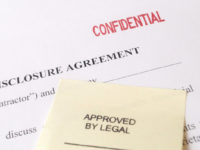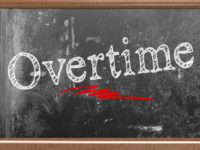Unfortunately with the economic fallout of COVID-19, we’re likely to see an increase in businesses going into liquidation. If a business which goes into liquidation owes your business money, will you ever see that debt repaid?
What does it mean when a company “goes into liquidation”?
When a company can no longer pay its debts it is considered to be insolvent and will be liquidated. Independent liquidators will be appointed to wind up the company, sell its assets and pay its debts.
Will my debt be a priority?
Unfortunately, there is no guarantee that your debt will be repaid. If there is not enough money left over once assets are sold, not all debts will be repaid in full.
There is an order of priority for how debts are repaid:
- liquidators
- outstanding employee wages and superannuation
- outstanding employee leave payments
- secured creditors
- unsecured creditors.
A secured creditor is someone who has a “security interest”, such as a mortgage, in the company’s assets. An unsecured creditor does not. Secured creditors will be prioritised over unsecured creditors when repaying debts.
What action can I take as an unsecured creditor?
Unfortunately, you cannot commence legal action against a company in liquidation. Instead, you will need to contact the liquidator to ensure you have been recognised as a creditor and are updated on the proceedings.
The liquidator will require you to complete formal proof of debt form and provide any accompanying documentation on the debt.
Find out when creditor meetings will be held and attend them. In these meetings, creditors will be asked to approve the liquidator’s activities. Get access to any creditor reports. Ensure you are up-to-date on the progress of the liquidation process and whether your debt is likely to be repaid.
So, will my debt be repaid?
If the liquidator is able to recover enough money from selling the company’s assets to pay off all debts including unsecured creditors, your debt may be paid. If there aren’t enough funds to pay all unsecured creditors, the remaining money will be distributed on a pro rata basis. Unfortunately, often there isn’t enough money remaining to pay off unsecured debts in full or at all.
Can I become a secured creditor?
If a company is already in liquidation, it is too late to become a secured creditor. However, there are steps you can take to avoid this in future with other debtors.
In 2009 the Commonwealth Government’s Personal Property Securities Register (PPSR) was introduced. With the PPSR, businesses can register their security interests in personal property other than land. This ensures you become a secured creditor if the company is liquidated down the track and ensures your debt is a higher priority.
Rolf Howard, Managing Partner, Owen Hodge Lawyers
















